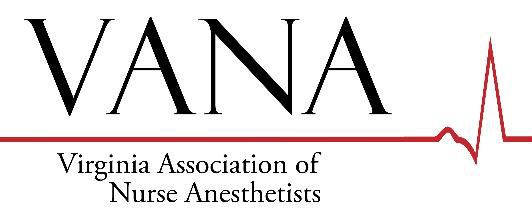Gary Hahn – My journey as a CRNA
As a life-long (and recently retired!) CRNA, I’ve found myself reflecting on my journey — how I decided to become a CRNA, what kept me involved in Virginia nursing, and what lessons, as a professor, I feel are most important to pass along to newer generations of CRNAs.
My first role in the medical field was a hospital job at St. Mary’s hospital in Lewiston, New York, serving as an orderly. I deeply admired the teams who worked around me and quickly learned that this was a career I wanted to pursue. At the time, my mentor was a nurse by the name of Tink O’Donnell, who stood out because of her incredible capabilities and dexterity within the field. Tink was exceptional, and she took time to guide the others around her and encourage them to learn and grow, to be better and do better. I will never be able to thank her, but she changed the course of my career. My first piece of advice for recent graduates is to look for mentors and ask for the help you need, because it’s there for you.
After working with Tink and being convinced that this was the career for me, I left St. Mary’s to pursue nursing school. My time in Richmond furthered my growth and strengthened my foundational knowledge, but it also gifted me a group of friends who were walking the same journey as I was – friends who are still in my life today, and who I turn to when I’m faced with difficult questions, both within my field and beyond. This group includes some of the most gifted nurse anesthetists’ I have ever had the privilege of knowing. My second piece of advice to recent graduates is to hold your friends close, and turn to them as often as possible. The anesthesia community is a very small community, and it’s a fantastic one. Protect your resources and build them up together.
After school I was privileged enough to join the faculty of Virginia Commonwealth University, where I am still given the opportunity to do lectures today. The opportunity to take someone with no knowledge of a subject and watch them grow and learn has changed my life, and I am eternally grateful. I hope that my students have learned as much from me as I’ve learned from them: my students keep me engaged, they keep me guessing, and I love to go back and find answers to questions I didn’t previously know. I will always encourage students to stay humble, because a student who behaves as if they know everything is in class to know, not to learn. I would much rather be in class with a student who wants to ask questions, expand their knowledge base, and learn.
If you find yourself teaching, as I have, consider yourself blessed. In a learning environment, there are so many more factors than just administering medicine and every one of them enriches the experience. Frankly, I don’t know if I would get into a nurse anesthesia program today. What these students are learning is so much more expansive than what my curriculum included, and they deserve all of the credit for the work they’re putting in.
My advice for CRNA teachers and professors is to remember what it was like when you were in the shoes of a student. My favorite days have always been graduation days when I can celebrate, confident in the knowledge that I’ve been a tiny part of so many lives and each of these incredible graduates are going to go out in the world and make an incredible impact on patient lives. As a teacher you, too, were taught by CRNAs. You have the opportunity to teach, and you have the opportunity to give back. What we do takes hard work and it didn’t come easily. Get involved and stay involved – in your professional organization, in your hospital or university, in your community.
Most importantly, for CRNAs of all ages and roles, is to never forget to protect their patient. I love seeing a good outcome and I love administering one even more. Stick to your guns for patient safety – you can’t live with fear, but you need to make smart decisions and you’ve put in years of work so you can be confident in those decisions. At the end of the day, patient safety comes first.
My decision to retire wasn’t an easy one, but it was the right one for me. I’m glad I was able to spend my working career as a CRNA in Virginia and continue to be engaged with so many incredible CRNAs at every level.

